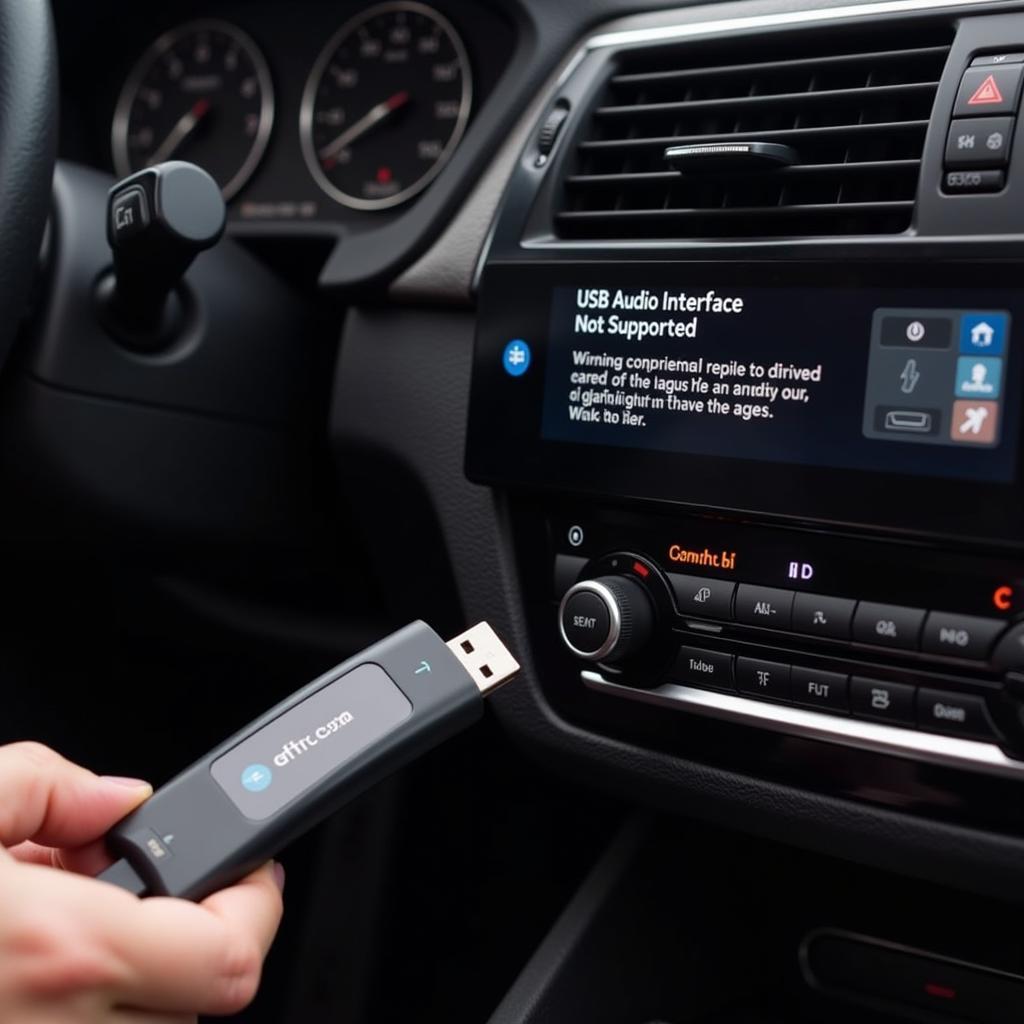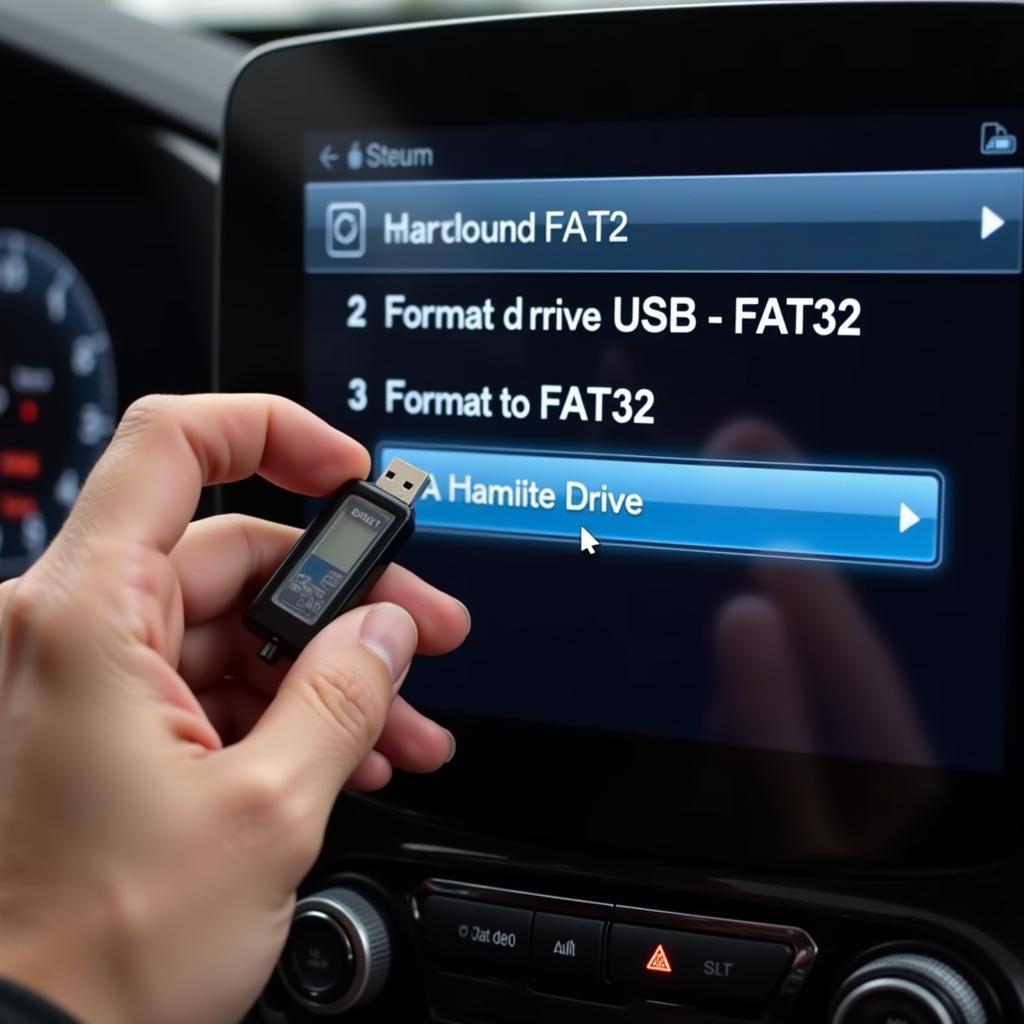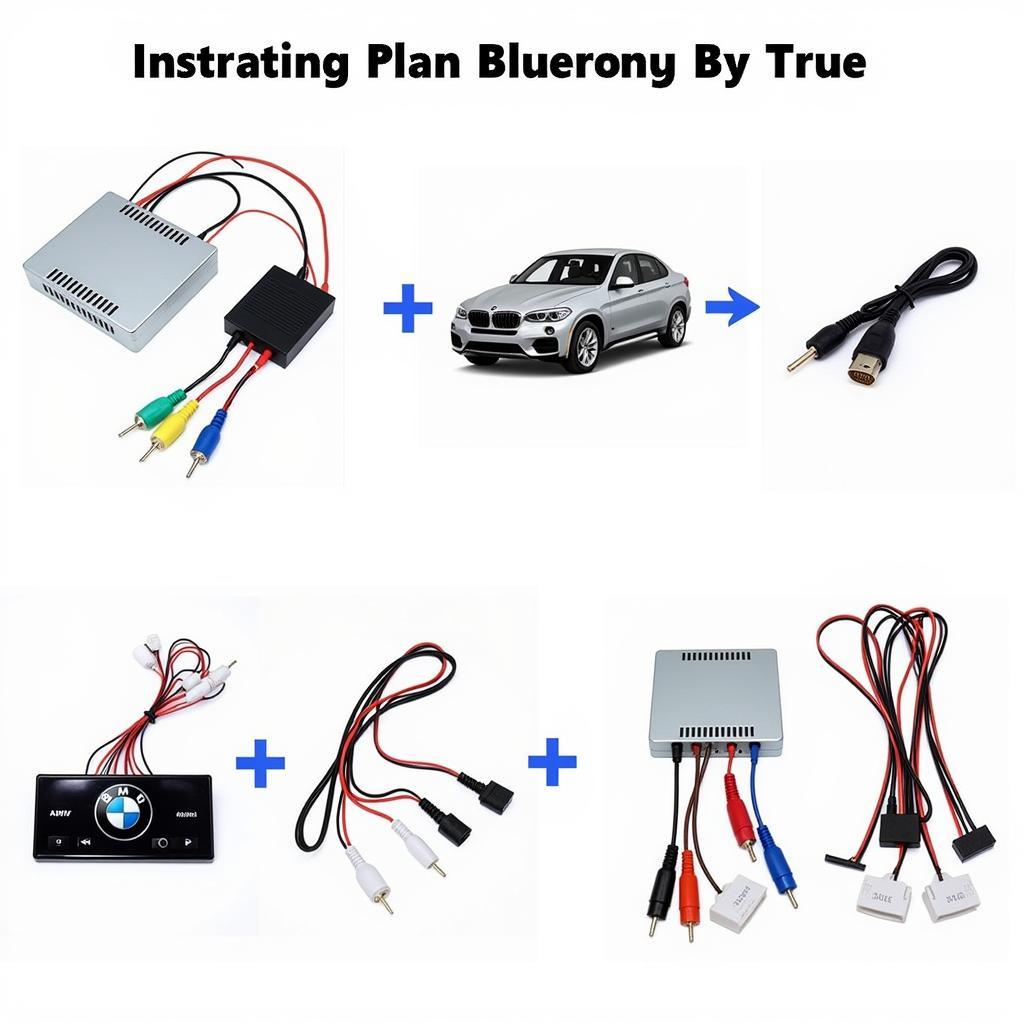The USB port on your BMW is more than just a charging station; it’s a gateway to your audio entertainment. This guide explores everything you need to know about the usb port on bmw for audio, from troubleshooting common issues to maximizing your listening experience. bmw usb audio port
Understanding the BMW USB Audio System
BMW’s USB audio integration offers a convenient way to play music from your devices. Whether it’s a USB flash drive loaded with your favorite tracks or your smartphone connected via USB, this system aims to provide a seamless audio experience. However, like any technology, it can sometimes present challenges.
Common Problems with BMW USB Audio
One frequent issue is compatibility. Not all USB devices and file formats are supported by BMW’s system. This can lead to frustration when your meticulously curated playlist refuses to play. Another common problem is the infamous “bmw usb audio interface not supported” message. This error can be triggered by various factors, from a faulty USB device to software glitches within the car’s system.
 BMW USB Port Compatibility Issues
BMW USB Port Compatibility Issues
Troubleshooting USB Audio Issues in Your BMW
If you’re encountering problems with your bmw usb audio not supported, there are several troubleshooting steps you can take. First, try a different USB device. This helps determine whether the issue lies with the device itself or the car’s system. Formatting your USB drive to FAT32 is another crucial step, as this is the most commonly supported format.
 BMW USB Port Troubleshooting Tips
BMW USB Port Troubleshooting Tips
Maximizing Your BMW USB Audio Experience
Beyond troubleshooting, there are ways to optimize your BMW USB audio experience. Organizing your music library into folders can greatly improve navigation and accessibility. Ensuring your music files are encoded in a compatible format, such as MP3 or WMA, is also essential.
Using USB for More Than Just Audio
Did you know the USB port in your BMW can do more than just play music? It can also be used for software updates and even charging your devices. Some models also offer video playback via USB.
“A common oversight is the file format,” explains John Miller, Senior Automotive Electrical Engineer at CARDIAGTECH. “Many assume any audio file will work, but sticking to common formats like MP3 usually solves most issues.”
bmw usb audio interface not supported
Beyond USB: Exploring Other Audio Options in BMW
While USB remains a popular choice, BMW offers other audio options, such as Bluetooth streaming and Apple CarPlay/Android Auto. These offer seamless integration with your smartphone, allowing you to access your music apps, podcasts, and audiobooks.
“Bluetooth streaming offers a convenient alternative to USB,” adds Maria Sanchez, Lead Diagnostics Technician at CARDIAGTECH. “It eliminates the need for cables and allows for effortless access to your phone’s audio content.” For those seeking a premium audio experience, upgrading to a high-quality sound system can make a world of difference. Options like the blam audio bmw offer enhanced sound quality and a more immersive listening experience.
Conclusion: Getting the Most from Your BMW USB Audio Port
The usb port on bmw for audio offers a convenient and versatile way to enjoy your music on the go. By understanding its functionality, troubleshooting common issues, and exploring alternative audio options, you can maximize your listening experience and enjoy every drive to the fullest. bmw usb audio not supported For specific model compatibility and troubleshooting, consider checking out resources for 2013 bmw x5 bluetooth audio.
Need further assistance? Contact us via WhatsApp: +1 (641) 206-8880, Email: CARDIAGTECH[email protected] or visit our workshop at 276 Reock St, City of Orange, NJ 07050, United States. We have a 24/7 customer support team ready to help.

